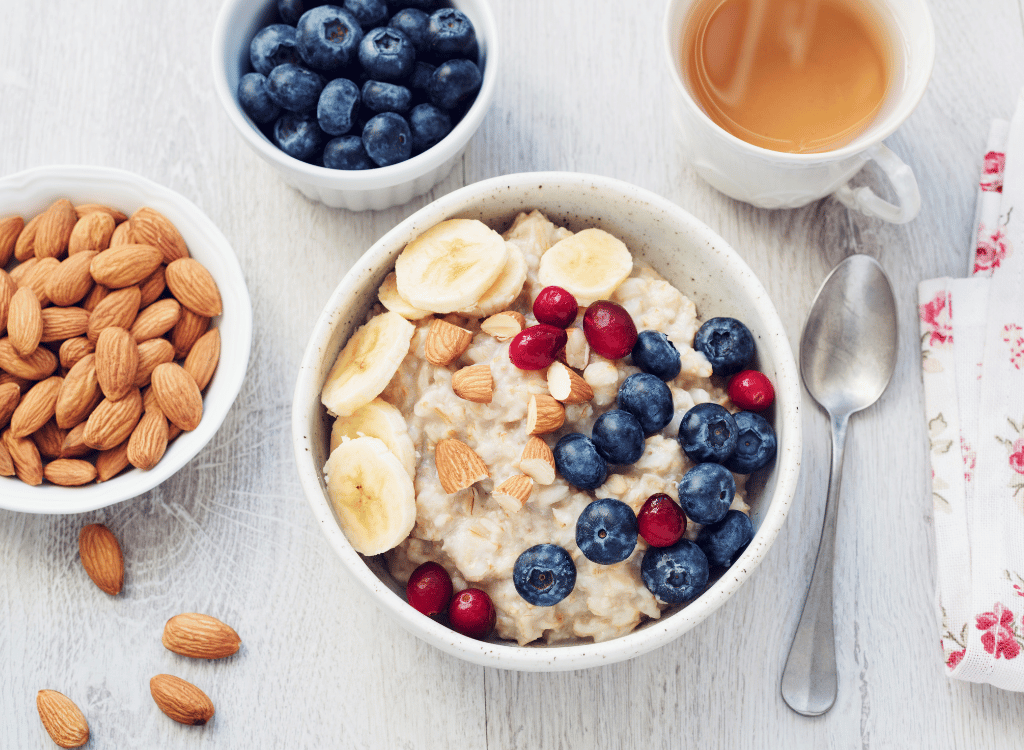
Vision board ideas for more calm and mental balance
17 de October de 2025
Understanding Menstruation: 7 Facts That May Surprise You
8 de November de 2025
Increase female fertility naturally: Tips on nutrition, cycle, and relaxation. Learn how you can support your body in your desire to conceive.
Inhaltsverzeichnis
When the wish for a baby appears, lots of questions suddenly pop up: Am I fertile enough? When are my fertile days? What can I do to increase my chances of getting pregnant?
The truth is: every body is different and fertility can’t be forced. But You can do a few things to gently support Your body and encourage
Your natural fertility. Fertility is an interplay of hormones, nutrition, lifestyle and mental balance. And it has a lot to do with mindfulness and understanding Your own signals.
That’s why this isn’t about pressure or rigid rules, but about compassionate tips on how You can lovingly strengthen Your fertility.
Why fertility is so individual
Your cycle is unique – and so is Your fertility. It depends on many factors: hormonal balance, nutrition, stress levels, movement, age and sleep.
Even small changes can have an effect:
- A stable hormonal balance helps ovulation to occur regularly.
- Sufficient vitamins and minerals support egg quality.
- Relaxation and a healthy mindset support Your nervous system and, with it, Your hormonal balance.
Papaya tip: If You want to understand Your cycle better, it helps to observe it over several months. A menstrual disc can help You get to know Your body – many women report that they notice their fertile days more consciously that way.
First steps: how You can support Your fertility
Sometimes it’s the small, regular changes that make the biggest difference. Here’s an overview of gentle yet effective approaches:
- Healthy nutrition: supply Your body with vitamins, protein and unsaturated fats.
- Understand Your cycle: pay attention to ovulation, body temperature and cervical mucus.
- Reduce stress: chronic stress suppresses hormone production – breaks aren’t a luxury, they’re a prerequisite for fertility.
- Movement: gentle yoga, walks or light training promote circulation and harmony in the body.
- Sleep & rhythm: regular rest is important to keep Your body in balance.
Your body needs balance – not perfection
Nutrition & cycle awareness – how to support Your body naturally
A healthy, well-nourished body is the basis of any fertility. Nutrition provides the building blocks for hormones, egg cells and a stable uterine lining. If You’re focused on increasing fertility, start here.
1) Eat in a fertility-friendly way
What You eat can positively influence Your cycle and hormone production. These nutrients are especially important for women who are getting pregnant:
Nutrient | Why it matters | Good sources |
Folate | Supports cell division & healthy eggs | Leafy greens, whole grains, pulses |
Iron | Promotes oxygen supply & energy | Porridge oats, lentils, millet, spinach |
Zinc & selenium | Important for ovulation & hormone production | Pumpkin seeds, nuts, eggs |
Omega-3 fatty acids | Support egg quality & reduce inflammation | Linseeds, chia seeds, avocado, salmon |
Vitamin D | Regulates hormones & immune defences | Sunlight, eggs, mushrooms, fortified foods |
Papaya tip: A warm breakfast with porridge oats, nuts and fresh berries stabilises blood sugar and supports Your hormonal balance – perfect for Your cycle and fertility.

1. Cycle awareness: learn to recognise Your fertile days
Your body sends You signals when You’re at Your most fertile – You just need to learn to read them:
- Cervical mucus: becomes clear and stretchy around ovulation.
- Basal temperature: rises slightly after ovulation.
- Ovulation pain (Mittelschmerz) or more sensitive breasts: many women feel their fertile phase this way.
This self-observation strengthens not only Your body awareness, but also trust in Your natural rhythm.
If You want to know more precisely when ovulation occurs, a fertility test for women can help. These tests measure the LH surge (luteinising hormone) in urine – a sign that ovulation is imminent and can support increasing fertility and getting pregnant.
3. Self-care & relaxation – underrated keys to fertility
Fertility isn’t a performance – it unfolds when body and mind are in balance. Stress can inhibit hormone production, while relaxation supports it.
- Schedule deliberate downtime: meditation, journalling or walks.
- Breathe deeply: breathing exercises help calm the nervous system.
- Tea rituals: a cup of Hormonal Balance tea can help regulate Your cycle and help You relax – especially in the luteal phase, when Your body is particularly sensitive.
Mindset & partnership – less pressure, more trust
An unfulfilled wish for a baby can be emotionally demanding. Many women feel the pressure to “perform”, but fertility isn’t a competition.
It grows with calm, trust and patience.
💛 Your mental balance is just as important as vitamins or ovulation tests.
When You put Your body under pressure, it often responds with stress – and that very stress can disrupt hormonal processes and work against increasing fertility.
How to relax Your mind
- Let go of perfectionism. You don’t have to control every cycle – sometimes letting go works more powerfully than control.
- Speak openly with Your partner. Wanting a baby is teamwork – emotional closeness can strengthen the connection.
- Visualise Your goal. A vision board (e.g. with words like “trust”, “security” and “patience”) can strengthen You mentally.
- Create small rituals. Perhaps an evening tea or a warm bath – self-care helps to soothe the nervous system and supports fertile days when You’re focused on getting pregnant.
Papaya tip: If You like, combine Your trying-to-conceive time with more mindfulness. In our article on learning self-love as a woman you’ll find inspiration on how to strengthen Yourself on this path – whatever the outcome.

Together hand in hand, that gives power and strength!
Conclusion – fertility isn’t a performance
Your body knows what it’s doing – it just needs time, trust and loving support. Whether through nutrition, mindfulness or deliberate relaxation: You can do a lot to gently encourage Your fertility without adding pressure.
Fertility isn’t a to-do list; it’s an interplay of body, mind and heart. And in this time, don’t forget Yourself: Self-care and calm are Your greatest allies.
FAQ - Frequently Asked Questions About Female Fertility
About every two to three days is ideal. This way, there’s a good chance sperm are present at the time of ovulation. Too-frequent sex can slightly reduce quality; too infrequent lowers the likelihood of getting pregnant.
Yes. There are fertility tests for women that measure hormones such as LH, FSH, or anti-Müllerian hormone. They offer indications, not absolute values. A gynaecological check-up can provide additional clarity. If you want to pinpoint ovulation and your most fertile days, a home fertility test can be a useful tool.
- A balanced diet with sufficient micronutrients.
- Cycle awareness and regular sleep.
- Less stress and enough relaxation.
- Movement in moderation – training that’s too intense can be counterproductive.
On average, around 25% per cycle if you have regular unprotected intercourse. This figure depends on age, hormonal status, and overall health.
A major one. Vitamins, minerals, and fats directly influence hormone production and egg maturation. Especially important: folate, zinc, omega-3 fatty acids, and iron.
Note
This article is based on personal experience and research. It does not replace medical advice. If You have health questions or Your wish for a baby remains unfulfilled for longer, please consult Your doctor.



